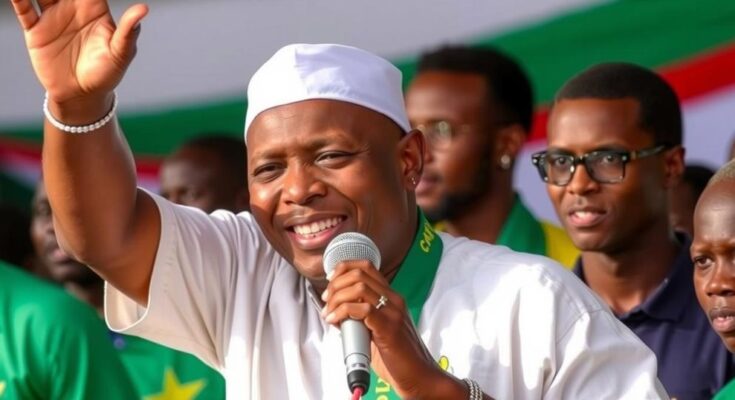Chad’s ruling party, Patriotic Salvation Movement, won a parliamentary election boycotted by main opposition groups, claiming 124 of 188 seats. The elections, marked by a 51.5% voter turnout, are viewed as a crucial step in the country’s democratic transition following military rule. Opposition parties criticized the election, labeling it a charade amid ongoing security challenges.
Chad’s ruling Patriotic Salvation Movement (PSM) party has secured a significant victory in the recent parliamentary elections, capturing 124 out of 188 seats. These elections, the first in over a decade, were characterized by a notable boycott from the predominant opposition parties, which raised concerns over their legitimacy. Voter turnout was reported at 51.5%, according to the provisional results disclosed by electoral commission head Ahmed Bartchiret. The elections are considered a crucial step in the nation’s transitional efforts towards democracy following the military takeover by Mahamat Idriss Deby in 2021, after the death of his father, long-time president Idriss Deby Itno.
The parliamentary election represented the final phase of Chad’s transition to a more democratic governance structure, initiated after Mahamat Idriss Deby ascended to power following a military coup. His rule commenced in the wake of his predecessor’s three-decade-long presidency. Mahamat Deby has promoted this election as essential for advancing decentralization in power distribution across the country. However, significant portions of the political spectrum, namely opposition parties, have rejected the electoral process, branding it as a mere facade for the ruling party’s consolidation of power.
In conclusion, the recent parliamentary elections in Chad have led to a decisive victory for the ruling party amid widespread opposition boycotts. While the government portrays this achievement as a step towards fulfilling democratic aspirations, the absence of significant opposition representation raises fundamental questions about the integrity of the electoral process. The situation remains critical, given the ongoing security issues and international relations challenges faced by Chad.
Original Source: abcnews.go.com




